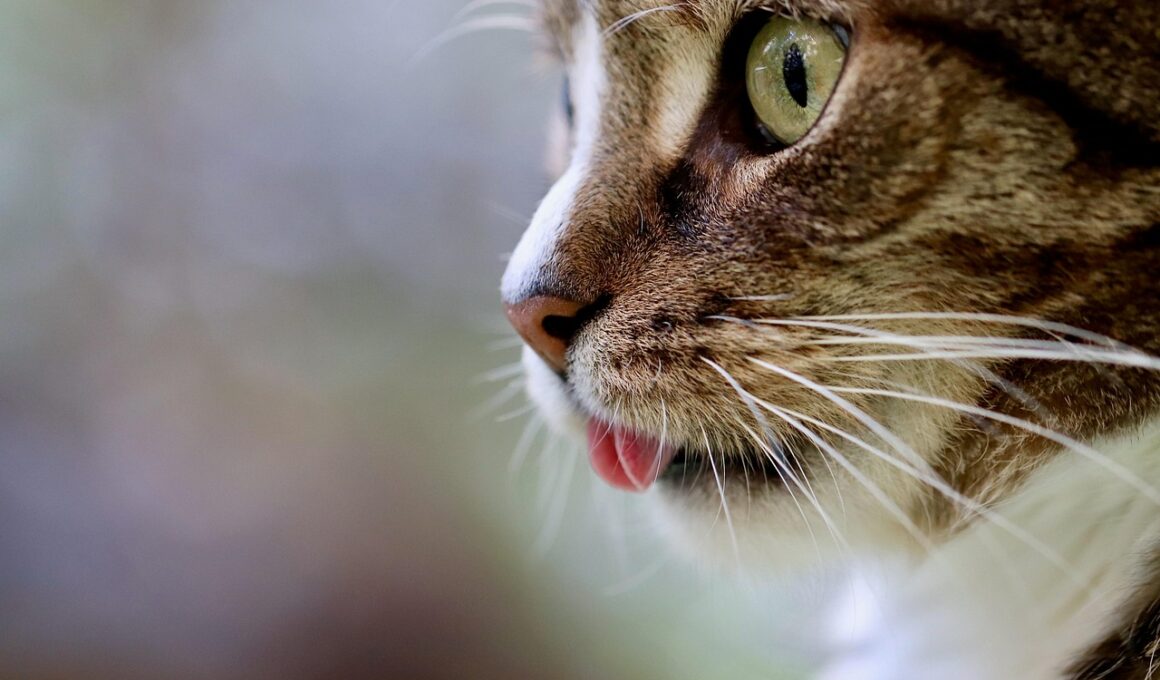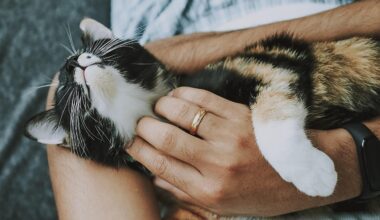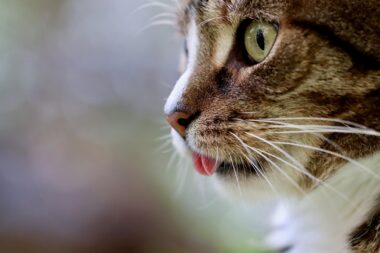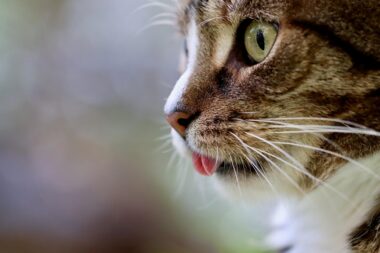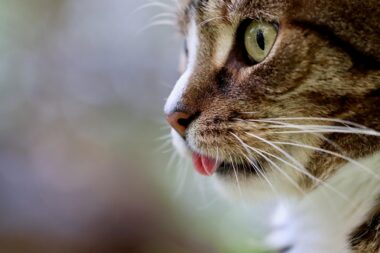How to Prepare Your Adult Cat for Vaccination Appointments
Preparing your adult cat for vaccination requires thoughtful planning. The first step is to ensure the vaccination is necessary and appropriate. Consult your veterinarian to confirm the vaccinations due based on the cat’s history and environment. Vaccinations can prevent serious illnesses and extend your cat’s lifespan. Make sure to gather all necessary paperwork, which includes previous vaccination records to share during the visit. This information is vital for ensuring your cat’s safe and effective vaccination schedule. Don’t forget to mention any health concerns or recent behavior changes to the veterinarian. It helps them tailor the vaccination to your cat’s specific needs. Additionally, consider scheduling the appointment for a time when your cat is relaxed. Timing matters! Cats can become anxious during appointments, so they might benefit from a visit in the morning. You may also want to skip the food prior to the appointment to avoid an upset stomach during travel. Visualize the entire process, from transport to veterinary office procedures. This perspective can help you prepare effectively.
After you’ve made the appointment, prepare your cat for travel. A secure carrier is essential, allowing your cat to feel safe and comfortable during transit. Try to familiarize your adult cat with the carrier days in advance. Encourage them to explore the carrier at their own pace, using treats or toys as incentives. Place the carrier in a familiar area of your home to reduce anxiety associated with the trip. On the day of the appointment, ensure you have all required supplies: carrier, vaccination records, and any medications. Calm your cat with soothing words and gentle strokes while placing them into the carrier. Some cats may require a little extra help, such as a favorite blanket or a toy, to feel secure during travel. Drive smoothly, avoiding sudden movements and loud noises. If your feline shows signs of anxiety, consider speaking gently, as your voice can provide comfort. Upon arrival at the clinic, take a moment to breathe and instill calmness. Your energy can strongly influence your cat’s reaction to the visit!
During the Appointment
Once at the vet, patience is crucial. Allow your cat to settle in the examination room before proceeding. Let them explore their surroundings while remaining in the carrier, as this can reduce anxiety. Staff members will likely be gentle and considerate of your cat’s comfort. Ensure to discuss any questions or worries regarding your cat’s health. This is the best opportunity to clarify information about vaccinations and any potential side effects. Following the vet’s instructions will ensure the process goes smoothly. After administering the vaccine, your veterinarian will monitor your cat for any immediate reactions. This observation period is common, and it helps in assessing your cat’s reaction to the vaccine. It’s crucial to pay attention to your cat’s behavior and heed any instructions imparted by the veterinarian. If any unusual reactions occur post-appointment, do not hesitate to reach out to the clinic for advice. An open line of communication can greatly benefit your furry friend. Remember, the commitment to their health today will result in happier days tomorrow.
Post-vaccination care is an essential step in your cat’s journey to maintaining good health. After returning home, allow your cat to adjust to their familiar environment. They may show slight signs of tiredness or lethargy after the vaccine, which is generally normal. Prepare a quiet space for them to rest. Offering soft food and plenty of fresh water is recommended, ensuring they stay well-hydrated. Monitor their behavior for any notable changes over the next 24 to 48 hours. If your cat experiences persistent lethargy, loss of appetite, or unusual behaviors, contact your veterinarian. Additionally, check the vaccination site for any swelling or discomfort that may arise. Generally, mild side effects can occur, such as a slight fever or soreness, which should dissipate within a day or two. Always trust your instincts when it comes to your cat’s health; you know them best. After a few days, your cat should return to their normal routine. Regular follow-ups with your veterinarian are vital for maintaining their health on an ongoing basis.
Understanding Vaccination Benefits
Vaccinations are essential for protecting your adult cat from various diseases. Feline viral infections can be life-threatening, making vaccinations crucial for their safety and well-being. These vaccinations help bolster their immune system, creating defenses against pathogens. Furthermore, they also help to foster herd immunity, ensuring that even cats who cannot be vaccinated are indirectly protected. This communal approach is vital in managing disease outbreaks within feline populations. It’s essential to note that some vaccinations are core while others are non-core, tailored based on each cat’s lifestyle. Regular vaccines, such as for rabies and feline viral rhinotracheitis, are recommended for all cats. However, other vaccines, like feline leukemia, may only be necessary for outdoor cats or those in multi-cat households. Ultimately, your veterinarian will guide you in determining what suits your cat’s needs. Maintaining up-to-date vaccinations not only protects your pet but can also ensure fewer health-related costs in the long run. This proactive approach reflects your love and commitment to their health.
Staying informed and proactive about your adult cat’s vaccination schedule is essential for their longevity. Regular consultations with your veterinarian will leave you well-informed regarding necessary vaccines and boosters. They will discuss the risks associated with specific diseases, especially prevalent in your area, and advise on vaccinations suited to your cat’s lifestyle. Timing for each vaccination is also crucial; certain vaccines may require boosters at specific intervals to maintain effectiveness. It’s not just about visiting the vet; staying current on preventive measures contributes significantly to your cat’s overall health. As your cat ages, they might require modified vaccines suited to their senior status. This is an essential discussion as it can change their overall care approach. Additionally, considering their diet, exercise, and general health can also make a big difference in how they respond to vaccinations. Continue monitoring their health and habits closely; it will go a long way in addressing any emerging issues efficiently. A cat that receives appropriate preventive care has a better quality of life with fewer health concerns.
Conclusion
Preparing your adult cat effectively for vaccination appointments is a journey that combines understanding, compassion, and care. Every step is ultimately geared towards minimizing stress and promoting a positive experience. Building a trusting relationship with your veterinarian is essential as they become crucial allies in ensuring your cat remains healthy. Each vaccination is not just a procedure but a step towards longevity and well-being. It’s important to view these appointments not merely as a duty but as an opportunity to engage with the veterinary team. Getting involved in your cat’s health fosters a stronger bond between you, your pet, and their healthcare providers. Always remember to maintain open communication about any concerns for ongoing healthcare. The education gleaned from these experiences equips you to become a better advocate for your feline friend. In doing so, you lay the foundation for their health for years to come. With proper preparation, support, and awareness, you can navigate these appointments positively, ensuring both you and your cherished companion thrive together.
As a final note, creating a routine around vaccination appointments will enhance your adult cat’s experience. Shielding your cat from potential stressors through routine can create familiarity, leading to better cooperation at the vet. Training your cat to feel at ease with the carrier and experiencing the trip beforehand will pay off significantly. Consider subtly integrating these appointments into an enjoyable experience. For instance, use treats to create positive associations with the carrier or veterinary visits. In addition, reward your cat after each visit to positively reinforce their bravery. Engaging them in a way that emphasizes the importance of health will also instill trust in you and their healthcare team. This ongoing process of education and preparation will undoubtedly create less anxiety surrounding future visits. Every vaccination appointment becomes less intimidating not just for the cat but for the owner as well. A commitment to their health coupled with the right preparation can foster a wonderful partnership for years to come. Conclusively, well-prepared vaccinations will benefit both you and your feline companions.
